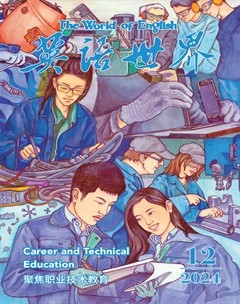I’ve been on ChatGPT a lot lately and—apparently—I’m not the only one. I’m not actually using it (though I intend to); I’m there to gawk over1 what it can do—and, spoiler2, it goes well beyond3 producing first-year term papers. At a recent social gathering, one of my colleagues demonstrated that—if given a fictional research question—the generative artificial intelligence behind ChatGPT can write nearly flawless computer code for a certain syntax-based statistical package commonly used among policy-researcher types, like myself. It was humbling4; I’ve spent years learning to write such code, to middling5 ability. As you might imagine, this demonstration led to some inevitable—and now ubiquitous6—hand-wringing7 about automation and the implications for society.
最近我一直在捣鼓ChatGPT,显然这么干的人不止我一个。其实我并没有在正经地使用ChatGPT(虽然我有这个打算), 我只是来凑个热闹,围观一下它到底能做什么——剧透一下,它的功能可远远不止撰写大一期末论文那么简单。在最近的一次社交聚会上,一位同事展示说,如果给它一个虚构的研究问题,ChatGPT背后的生成式人工智能就能编写出近乎完美的电脑代码,形成一个基于句法的统计数据包,供我这样的政策研究人员使用。这实在让人自愧不如,我花了好些年学习编写类似的代码,却始终水平一般。正如你可能猜想到的,这样的展示引发关于自动化及社会影响的忧虑,这种忧虑是难免的,如今无处不在。
To what degree can automation affect the career outcomes of graduates of Career and Technical Education (CTE) programs? I’ve done some preliminary digging and have an idea, but a quick CTE is a useful starting point.
自动化会在多大程度上影响职业技术教育(CTE) 毕业生的职业出路呢?我已经做了一些初步的调查,并有点自己的想法,但简短介绍一下CTE有助于开个好头。
Today’s “career and technical education” is yesterday’s “vocational education,” though not really. Like previous iterations8, contemporary CTE focuses on equipping high school and community college students with technical skills that are closely tethered to specific workforce applications—think carpentry9 or plumbing10. By contrast, courses and programs within the “academic” curriculum emphasize subject-matter knowledge and the development of broadly applicable skills—think history, science, language studies, etc.
如今的“职业技术教育”就是以前所说的“职业教育”,但也不尽相同。与以往的职业教育一样,当代CTE侧重于让高中生和社区大学的学生掌握和特定劳动力应用密切相关的专门技能——比如木工和管道工。相比之下,“学术”教育中的课程和专业则更注重学科知识和普适性技能的培养——比如历史、科学、语言研究等。
Modern-day CTE advocates would argue the similarities to former vocational education models end there, however, and would likely (and rightly) assert that making the “academic” versus “vocational” education distinction is a bit anachronistic11 given the college- and career-readiness movement, and mater-ial changes to federal CTE legislation have, over time, successfully blurred the lines between the two. There’s a collective (and bipartisan12!) sense that these changes have steered13 CTE in a positive direction, toward “relevance and rigor14,” and away from its “dark history” of tracking15 disadvantaged students into low-wage, low-opportunity occupations.
不过,当代的CTE提倡者可能会认为CTE和以前的职业教育模式相似之处仅止于此,并且,他们还可能会(正确地)断言,区分“学术”教育和“职业”教育已经不合时宜了,一是由于上大学和就业准备运动,二是由于随着时间推移,联邦CTE立法上的实质性变化也早已成功模糊了二者间的界限。





